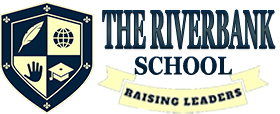Music
Overview
The Music Department at Riverbank secondary school introduces pupils to a wide range of musical experiences, including musical history, composition and performance.
Aims of the Department are;
- To involve as many pupils as possible in a variety of musical experiences
- To introduce pupils to every type of music from around the world throughout history.
- To enable every pupil to experience performing music in class and through extra curricular activities.
- To give every pupil a foundation in musical knowledge which they can appreciate and build on through their lives.
Curriculum
Sibelius 7 is used by all pupils in class music lessons in association with the theory and composing work outlined below:
Year 7
Pupils are introduced to the basic rudiments of music. These are then put into practice through composing and performing work which is related to descriptive elements. The pupils will also listen to Western and non-Western music which has a descriptive aspect. We also feature a good touch of African
Year 8
The rudiments of music from Year 7 are now further explored through the study of Chromaticism, Scales and Intervals. Further composition work is carried out using these elements along with related listening and some class singing.
Year 9
The pupils will study how different structures and styles are used such as Variations, Modes and Blues. Composition work using these elements will be done individually and in groups with the opportunity to perform their compositions. Related listening is carried out to give examples of these elements.
IGCSE
There are three main elements to this course – Composing, Performing and Listening. Two compositions are produced with the candidates giving close attention to Rhythm & Metre, Harmony & Tonality, Texture & Melody, Timbre & Dynamics, Structure & Form. Solo and Ensemble work is performed and the Listening Test exam tests candidates on their ability to recognise the elements used in the composing. All candidates are encouraged to be ambitious in their work and aim for a higher standard than expected from the exam board Specification.
Educational visits and extra curricular activity
There are a number of Educational Visits as well as numerous extra-curricular musical activities for pupils to get involved with;
Rooms and resources
The music department has a large teaching room of which are used for choir, band and other ensemble rehearsals. There is an extensive library of music for the choirs and band.
[gs_logo]




